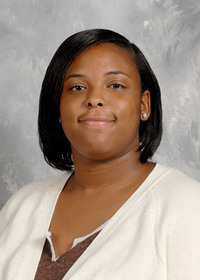Information Possibly Outdated
The information presented on this page was originally released on February 25, 2002. It may not be outdated, but please search our site for more current information. If you plan to quote or reference this information in a publication, please check with the Extension specialist or author before proceeding.
Program helps students examine medical careers
MISSISSIPPI STATE -- An intense summer program aims to entice high school juniors into family medicine as Mississippi approaches a critical need for medical professionals.
With one out of five Mississippi physicians over the age of 60, the Rural Medical Scholars program's aim is to identify the state's future primary care doctors and help them become members of the medical school class of 2011.
"We need to develop a pipeline of future medical providers," said Bonnie Carew, rural health policy coordinator for Mississippi State University's Extension Service. "As the state's population continues to grow, the concern for adequate health care increases as well."
Sponsored by the Rural Health Corps, a joint effort of MSU's Extension Service and the state's 15 community and junior colleges, the program is in its fifth year. Thirty students entering their senior year of high school can attend the six-week program at MSU. Students with at least an ACT composite score of 25 will take two pre-med courses -- zoology and college algebra -- and observe doctors at practice throughout the program.
The selected scholars will receive tuition, housing and a food allowance for the six-week program, between June 23 and Aug. 2. A $35 registration fee will be required -- a bargain, said Timothy Chen of Starkville, a 2001 program participant.
"You can't find a better prep for college for the price than the rural medical program," Chen said. "The experience really helped give me some direction in where I need to be going."
Chen, a senior at Starkville High School, said he knew he wanted to become a doctor, but the opportunity to shadow doctors cemented his interest medicine.
Chen and fellow participant Kate Norris of Hattiesburg agreed that the hardest part of the program was the college-level classes, but one of the best parts was meeting other seniors with similar interests.
"My fellow scholars have become my best friends; I met the best people in the world, and I am privileged enough to call them my family," Norris said. "It radically changed the direction of my life in a positive way."
Lessons learned go beyond the six-week program.
"The program is designed to anchor the youth to their local communities with an appreciation for medical needs in less populated areas," Carew said. "After the program, participants will be much closer to knowing if they want a medical career, and they will be better prepared to face the challenges ahead."
Each of the state's community and junior colleges will select and sponsor candidates from its district. After high school graduation, participants will be eligible for a full scholarship to their sponsoring community college.
Applications are due by April 17 to local community colleges. Contact a high school guidance counselor or the nearest community college for more information or an application. Information is also available from county home economists and 4-H youth agents. Applications and a brochure are available online at www.RMS.msucares.com.
The Rural Health Corps sponsors another program geared toward students interested in a more general health-related career. Rural Health Explorers will target future nurses and allied health professionals and be based at Mississippi Gulf Coast Community College in Perkinston.
"Mississippi's needs for all medical-related services is only going to increase," Carew said. "We have to identify interested students as soon as possible and help them prepare themselves for serving their communities."



